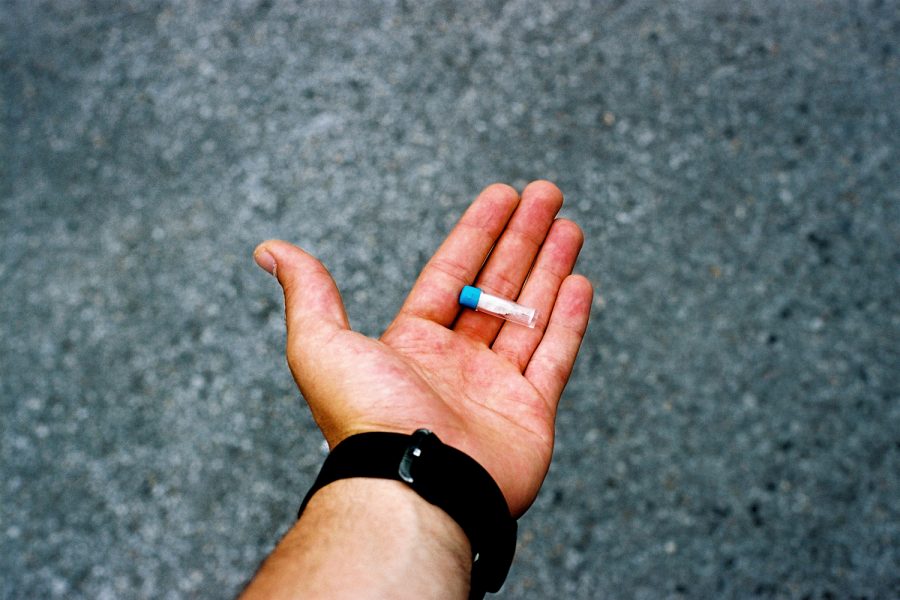Doc Is In | Ketamine: Tranquilizer or therapy mental health conditions
Ketamine, both an anesthetic and recreational drug, has found a new niche in psychiatry as a novel and effective treatment for numerous mental health disorders including depression, suicidal ideations and chronic pain.
Analog photograph.
April 25, 2023
Known as “Special K” by partygoers or tranquilizers by veterinarians, ketamine has re-emerged as an innovative psychiatric therapy.
What does ketamine do?
From its first forays in the fields of Vietnam as a Food and Drug Administration-approved anesthesia medication, ketamine was branded a dissociative anesthetic. When anesthetized, people sometimes reported perceptual distortions and feelings of unreality called dissociations. These psychedelic properties were co-opted by folks seeking to experience similar trips, introducing ketamine to the repertoire of recreational drugs.
Recently revolutionizing ketamine’s reputation, results from a randomized-controlled trial conducted in 2000 using intravenous ketamine to treat depression shocked scientists. They discovered the drug generated significant antidepressant effects within hours — contrary to antidepressants like selective serotonin reuptake inhibitors that often need weeks to work.
Further, the percentage of patients who received significant symptom reduction or responded to treatment greatly exceeded studies of traditional antidepressant medications.
One main hypothesis on the rapid and profound relief is that by blocking neuronal NMDA receptors, ketamine quickly increases the release of brain-derived-neurotrophic-factor. This growth factor promotes synapse formation to potentially rewire faulty neural circuits that possibly perpetuated these disorders.
Does ketamine work for depression?
Despite expedient effects, clinicians noted benefits from a single treatment lasted roughly three to 12 days before returning to baseline. These findings pushed practitioners to research alternatives to deliver and sustain ketamine’s depression relieving properties.
In 2019, after several studies showed similar rapid-acting antidepressant effects and safety profiles, the FDA approved intranasal ketamine for treatment-resistant-depression. This form, esketamine — known by the brand name Spravato — is often given twice weekly for the first month, and then once weekly afterward to maintain benefit. While administered under supervision in a doctor’s office, in addition to nasal sprays, patients may also continue taking oral antidepressants to create a combined and lasting response to treatment.
Is ketamine safe to use for depression?
Although IV ketamine lacks FDA approval for mental health disorders, ketamine clinics have opened across the world and in Iowa, including Midwest Ketafusion and Corridor Ketamine. Here, providers offer IV ketamine infusions for a variety of conditions, not just for mental health. IV ketamine is not FDA-approved and thus not covered by insurance, so each treatment may cost $400 to $500.
Notwithstanding ketamine’s numerous potential positives, clinicians warn it is not safe for everyone. Ketamine can cause dissociations, and for people with personal or family histories of psychosis, treatment could worsen underlying psychotic disorders. People with blood pressure or cardiac issues require close monitoring if receiving ketamine, as it can rapidly increase heart rate or blood pressure. Long-term use can also cause cystitis (inflammation of the bladder), rarely requiring people to need bladder transplants.
Altogether, with the meteoric rise in providers prescribing ketamine as well as patients receiving potentially lifesaving and breakthrough relief from persistent psychiatric pathology, researchers have ramped up research on ketamine’s utility and ability to treat several psychiatric conditions. Studies are currently testing ketamine’s effectiveness in at-home oral treatments; ketamine in conjunction with psychotherapy; and in a variety of other mental health disorders including eating disorders, PTSD, and more.
-Nathen Spitz, fourth-year medical student, Class of 2023
Columns reflect the opinions of the authors and are not necessarily those of the Editorial Board, The Daily Iowan, or other organizations in which the author may be involved.



